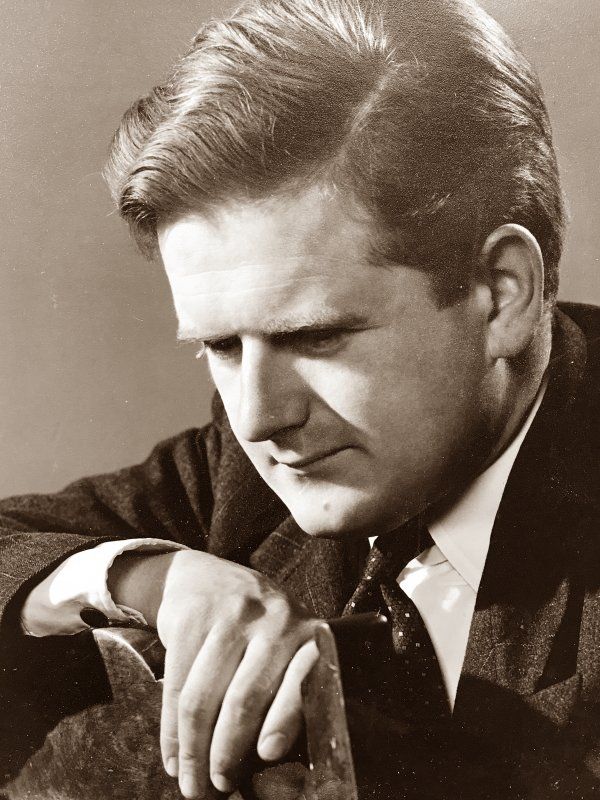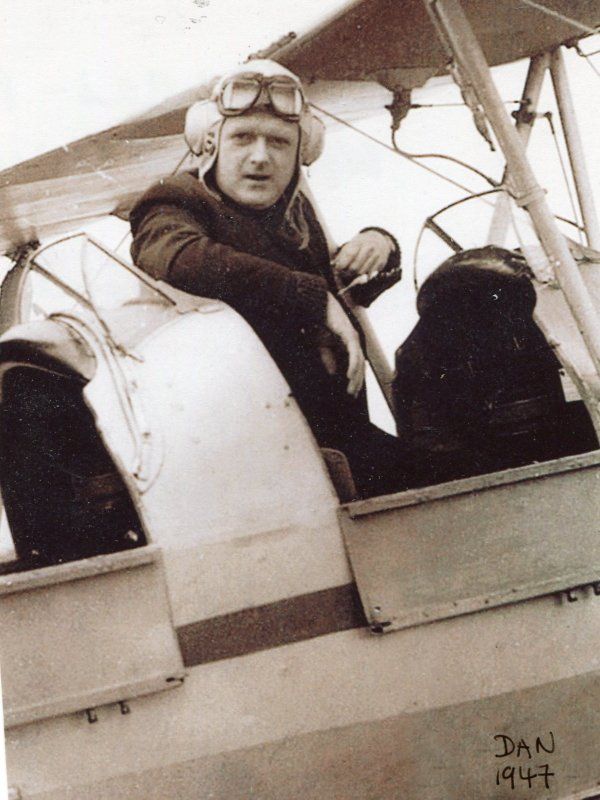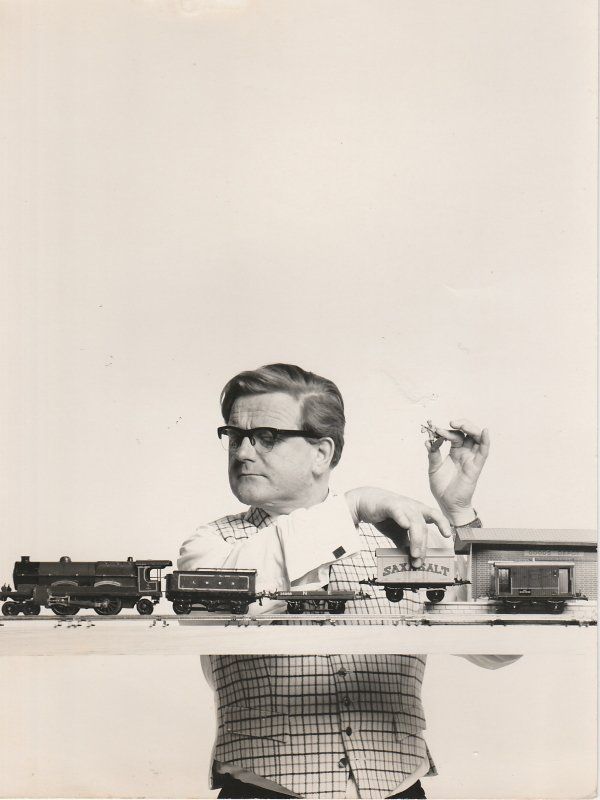Daniel Nicholas
Daniel Nicholas
Daniel Nicholas was born on 26th October 1925 into an artistic family - his father John was a painter, playwright and advertising mogul and his mother Gladys an opera singer.
In 1943, Daniel signed up and earnt his wings in the British Fleet Air Arm and Royal Airforce. Towards the end of the war he was stationed at Corpus Christi in Texas with the American Airforce where he was trained by Hollywood stunt pilots. Dan had a lifelong love of flight and after the war he had automatically become a member of the RAF Voluntary Reserve.
One day, the young headstrong pilot challenged his instructor to stage a mock dog fight for a gallon of beer in order to prove once and for all who the better man was. Both failed to recognize they were flying too low and when Dan’s Tiger Moth stalled on a sharp turn, he was only one hundred feet above the ground and his plane crashed into a church wall.
Severely injured, Dan lay in a restless coma with two badly smashed feet, a missing knee cap and a broken finger. The doctors performed miracles on his feet and, in a ground-breaking operation, knit his bones back together to form a solid mass which resembled, but never again functioned as, a foot. The spectre of amputation loomed for some time but in the end the operation was written up as a triumph in the medical magazine The Lancet. His co-pilot mercifully escaped uninjured.
When Dan finally came home on crutches, his sister Theresa drove him to Portsmouth Aerodrome where, armed with his log book, he convinced the commander to let him take up a Tiger Moth in his socks. Despite the doctor’s prognosis, he was able to walk again, but his disability took a severe toll on his body and his mind.
After his recovery, Dan went on to study at Worcester College, Oxford, under J.R.R. Tolkien, author of The Hobbit and Lord of the Rings and then followed his father into the world of advertising, joining Saward, Baker and Co.
He was a very successful copywriter, conjuring up Old Spice surfers and Felix the Cat, and starred in his own adverts for Nescafe. He could be seen – Saville Row suited and bespectacled – on billboards around the city taking in the heady aroma of granulated coffee but, at the same time, he despised consumerist culture and increasingly spent his time writing poetic diatribes about the evils of consumerism.
After marrying Maggie Pycroft in 1959, he bought a crumbling 18th century cottage in North Buckinghamshire called Larkland as a rural retreat. And after being made redundant in his early 40s, Dan and Maggie moved to the Larkland, where Dan dedicated himself to writing beautiful and often tragic poetry.
Daniel loved Larkland with a passion and it was here that he truly developed as a poet. Much of his early poetry reflected the love of his home and his family, but gradually his poetry took on a darker tone. Nowadays Daniel would have been labelled as bi-polar but the older term of manic depression better describes the extraordinary roller coaster that he travelled from enormous heights of creative imagination, extroverted wit and even joy, to the dark depths of introspection, frustration, inwardly focused anger and despair at the world.
Dan’s poetry was heavily influenced by his interest in theories of the Swiss psychologist Carl Jung. Like Jung, he believed that the decisive question for man was whether he was related to something infinite or not, but, like Jung, he found God to be an absent and heartless landlord.
He wrote about the collective neurosis of the age, loss of soul and a profound superficiality and conformity to consumerism. He had little time for superficiality of society and became obsessed with the shadow, the dark area of our personalities which most of us struggle to keep under control for fear of rejection and isolation.
Despite being married to a best-selling author, Dan had little time for the business of publishing, but in 1988 self-published a compilation of poems entitled Disposition of C90 which was very well received.
But a lifetime of struggling with his disability had taken a toll on Dan’s health and he sadly passed away from a massive stroke at the age of 69. However, his poetic legacy lives on and one of his most beautiful poems provided the inspiration for, and is featured in, my best-selling memoir Sea Changed.




